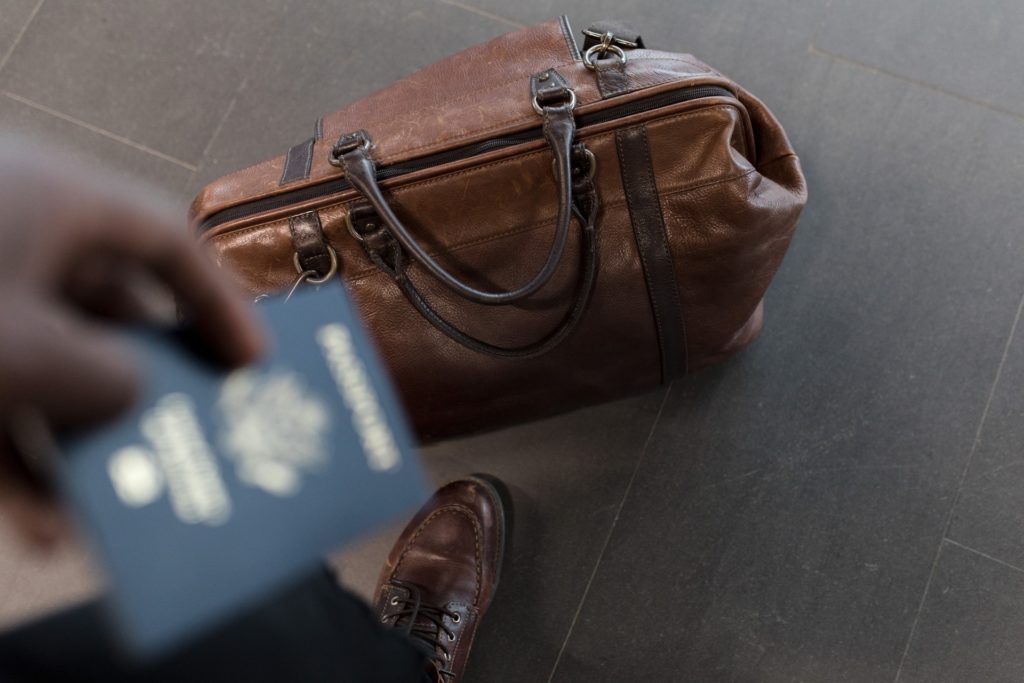There are a number of reasons for shifting from Uganda, which include advancing your education, new career paths, immigration, enjoying life and experiencing new cultures. Uganda is a great country but change is inevitable.
If you want to shift to a new country, you must first fulfil a few requirements depending on the country you are moving to. Before starting the application process, it is important to understand what is required of you.
As exciting as it may sound, it frequently involves extensive planning and preparation, which can be hectic on you if you don’t work things out in advance.
We are aware that moving to a new country has a number of distinct obstacles, including figuring out how to move, where to live, how to make money, and how to apply for visas. Here are a few things that you need to put in mind:
1. Set aside money to cater for the move
Shifting from Uganda can be pricey. The costs of moving to another country include custom expenses like moving expenses, housing deposits, and transportation, but they also contain some amusing extras like visa applications, foreign insurance, and even the probable necessity to retain legal counsel.

To create a monthly budget that will work for you, start by investigating exchange rates and the cost of living in your new neighbourhood. Then, use your income as a guide. In order to be prepared for any unforeseen circumstances, aim to set aside six months’ worth of that budget before your shift.
2. Apply or renew your passport as soon as possible
For a country that requires you to apply for a visa, you need to have a current passport. Some nations demand that your passport be current for at least six months beyond your intended return date.

If your passport expires while you are travelling and you don’t have a specific return date, you can look up the passport renewal process in the country that you have shifted into.
3. Request for a visa
Obtaining a visa is probably the most stressful aspect of moving to a new country because they might potentially reject you at any time for any reason. To be safe, check the official government website of the location you intend to shift into to discover what documentation you need to support your application and make sure it’s all in working order to assist in reducing the danger of being denied a visa.
4. Make copies of vital papers
Make sure you have originals and copies of all your vital documents, such as;
- Papers proving adoption or a birth certificate
- Custodial agreements
- Divorce documents
- Driving permit
- Marriage certificate
- Social Security number
- Dental and medical records
- Student records
- Passport
- Immunization records
- Visa information
These copies will be useful for any appointments involving residency. If you decide to save personal data online, be sure to do so on a safe platform that has two-factor verification to protect your identity.
5. Spend enough time on research

Even if you are very familiar with your new location, you will need to conduct extensive research in order to prepare for the major shift. There are a lot of things you should think about and ask yourself, including:
-
Storage versus shipping versus selling
Will you store your belongings in Uganda or ship them to your new home? You should consider each option’s logistics and expenses, which can total thousands of shillings.
If you’re moving somewhere more permanent, you might also want to consider selling your possessions. Find out where you can buy essentials like furniture, bedding, kitchen appliances, and utensils if you’re going to relocate overseas with just two suitcases and a carry-on.
-
Transportation
Will you be driving, or is public transportation available to your new location? If you intend to drive, you should weigh the benefits and drawbacks of shipping your vehicle, purchasing a new vehicle, and renting a vehicle.

You might also need to obtain an International Driving Permit (IDP) before moving, depending on the nation you are shifting to.
-
Culture
Before the big move, get accustomed to the local customs by learning about the past and present of your new country. If you’re relocating to a place where the language is unfamiliar to you, learn a few words and phrases and educate yourself on the customs and etiquette of the area by reading about it and watching movies set there.

Culture shock can be lessened and social gaffes can be avoided by doing research and learning about the local way of life. Additionally, if you don’t already speak the language, consider taking classes or, at the very least, trying to download a language-learning app. This will help you integrate into your new community and interact with people.
6. Early planning is key
The earlier you begin, the simpler it will be to handle any unforeseen circumstances or problems, beginning no later than six months before your move (if you have the time).
Write down what you need to do pre-shifting and even post-shifting and tick off once done. This will help you stay disciplined to timelines.
7. Look up international moving firms
Moving your possessions to a different country will take more time and require licenses.
International transfers are a speciality of some moving firms, but it’s up to you to do your homework and compare rates from various reliable businesses. Make sure the business has a license to operate. A reputable business can also help you fill out the correct customs documents so you can legally import your goods.
8. Prepare documents for your pets

Depending on the nation, different rules apply to shifting with your pets. It’s crucial to learn about the nation’s import regulations for live animals. Certain dog breeds may be prohibited or restricted in some nations. To prove that your pets are current on their vaccines, you will typically need to present a health certificate. Your pet may need to be quarantined when it arrives in specific situations.
9. The Custom Process
-
Your customs documentation is examined by a customs officer
Particularly the shipping label and commercial invoice, these documents must be correct and comprehensive. The airway bill number, export date, and receiver’s contact information are all listed on the commercial invoice, which is also the most crucial document.
-
Using the customs paperwork, import duties and taxes are determined
The type of goods, their cost, and the particular import laws in the receiving country all affect the import fees. Items that are worth more than the minimum value, or the minimum taxable amount for imported goods, are subject to import charges.
-
If applicable, taxes and duties must be paid to Customs
The customs officer determines whether duty and taxes have been paid if your shipment exceeds the tax threshold. Additionally, regardless of their value, some banned commodities may be subject to fees.
-
The moment all duties are paid, your shipment is cleared by customs
Your preferred courier service carries the shipment from customs to the final destination once customs clearance is complete. Rarely do shipments get held up at customs. When they do, it’s typically a result of incorrect documentation.
10. Consult a professional on moving
Specific papers may be needed in order to shift to (or visit) numerous other countries. An immigration specialist is a specialist that can assist in ensuring that you have everything required to relocate to another nation legally.
They will assist you in comprehending immigration regulations, deadlines for submitting paperwork, necessary vaccinations, and other guidelines for bringing in household goods. To start the paperwork, go to one at the beginning of your moving procedure.
Don’t stress yourself, request a quote!


